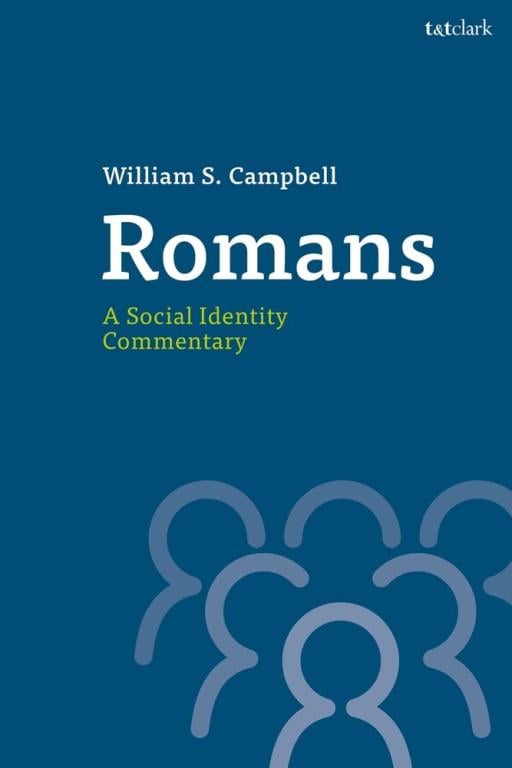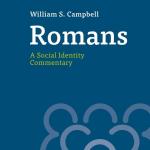Q. Here are some thoughts about some of the major building blocks of your argument and my issues with how you read the text of Romans. I don’t really think you can get around the universalism of 3.20 ‘by works of the law ‘all flesh’ which includes Jews cannot be set right with God’. This is so for two reasons: 1) Paul believes in the universality of sin and of all being sinners, and that all need Christ, the Jewish messiah to redeem them. Indeed, Paul is exhibit A that even very observant Jews need to be redeemed by Christ; 2) while allowing that comparatively speaking Gentiles are far worse sinners that Jews, and so some Jews could be said to be righteous by comparison, nevertheless all need the grace of God in Christ to be saved; 3) here is where the work of Sanders is helpful. He is right that OT religion is not some sort of graceless religion so that we could pit Judaism in general vs. Christianity as religions of works righteousness vs. religions of grace. This is false. What is however true is that there were plenty of early Jews who believed that by works righteousness, by obedience to Torah they maintained their righteousness before God and so did not need to be ‘born again’ or a new creature in Christ. And herein lies the rub. Paul believes that not merely getting in but staying in is a matter of God’s grace, and not just obedience after one gets in and one needs the grace that comes from Christ for that. At 10.3 you do not pay attention to ‘they tried to establish righteousness for themselves’ (by keeping Torah) as a critique of Jews who don’t follow Christ. In Paul’s view everyone ultimately must receive the righteousness that comes from Christ now that the messianic times have dawned, and so there is a critique here of Jewish ‘works righteousness’. i.e. by doing the Law. See the volume by Seifrid, Carson, and O’Brien, on Variegated Nomism Vol. 1: The Complexities of 2nd Temple Judaism. Examples where works righteousness is advocated include 4 Ezra 7; Sirach 3:14, 30; 16:14; 2 Baruch 14:12; 24:1; 41:6; Testament of Abraham A12:12–13; A 14:2–4; Rule of the Community (1QS) I, 7–8; III, 9–12; Pesher Habakkuk (1QpHab) VIII, 1–3; Miqsat Ma‘ase Ha-Torah (4QMMT) C 26–32; m. Abot 2:16; 3:15; 4:11, 22; and t. Qiddushin 1:13–16. There are more examples. So, some Jews did indeed try to maintain or establish their right standing with God through works of the Law. Sanders simply says they were being inconsistent with their existing theology of God’s gracious acceptance of them despite their sins. How would you respond?
A. I can easily admit there might have been some Jews who thought this, but that is not Paul’s main concern. First of all we need to be careful with the interpretation of all these sources you mention above. I think it is not warranted to compare Paul with Rabbinic sources without clarifying this methodologically as it is notoriously difficult to date the latter. With regards to the Second Temple sources, lumping these together as evidence for a notion of works righteousness is methodologically questionable. As none of these addresses the role of doing the Torah by gentiles, they reflect inner-Jewish discussions and should be read in light of their specific contexts and issues that are being addressed. So let’s turn to Paul and the passages you mention.
As for 10.3 I translate this as ‘for being ignorant of the righteousness of God, and trying to establish (it) for themselves, they have not submitted to God’s righteousness’ (Commentary, 268). My view is that Paul is saying that those who do not see the inbreaking of messianic time in Christ think that God’s righteousness at this non-messianic time is for them, the people Israel, for them alone, and not also for gentiles. They have a limited perception of the extent of God’s righteousness now revealed in Christ.
Concerning 3.20, I agree this applies to Jews and non-Jews alike. Any Jew would agree to that. The question what is meant by erga nomou however, needs further qualification. I know that is traditionally understood as meaning observing Torah as a means of obtaining grace. However, in Jewish understanding, observing Torah is in response to God’s unconditional grace evident in his calling Israel into being, and committing himself to his people. Of course this response is part of belonging to God, and the Torah provides guidance for life in this relation. Anything else would amount to cheap grace.
In my opinion, Paul does not have this response aspect in view when he uses the rare expression erga nomou. If gentiles who wish to belong to this God, observe Torah, that is, follow its guidance, they do not do this in response to God’s call, because they have not had such a call (they are not Israel). Hence, what they do possibly with best intentions is done to earn God’s grace which in Paul’s view can come to gentiles only through Christ. It is they who need to understand that Israel is only Israel by God’s graceful call, nothing they did ever earned them God’s love. So for gentiles this graceful call came through Christ at the dawn of messianic time. Now gentiles through Christ can also be called in grace, and live a life in relation to this God. They are also expected to respond to this call with their entire way of life, as Paul outlines in Rom 12.













